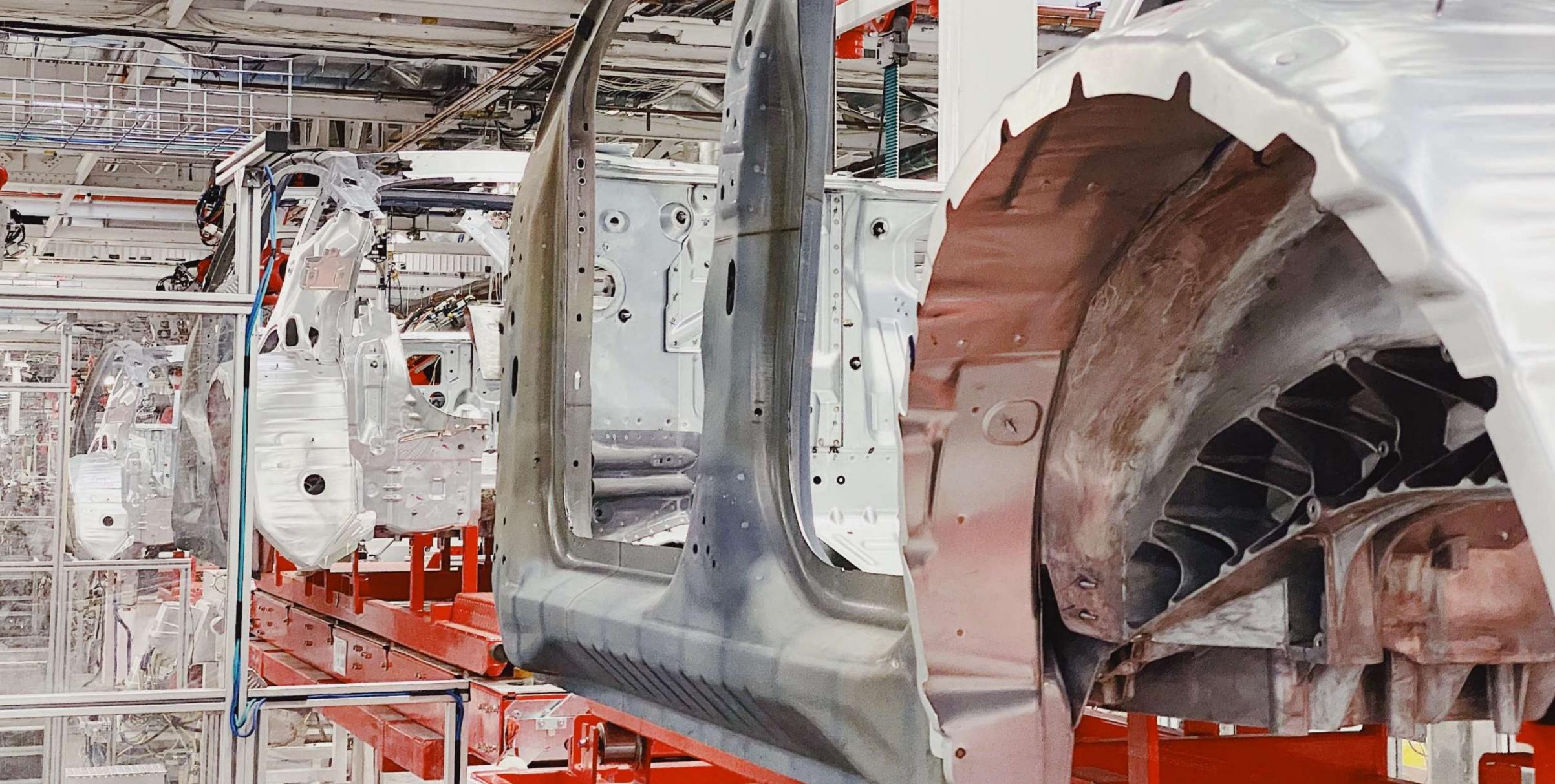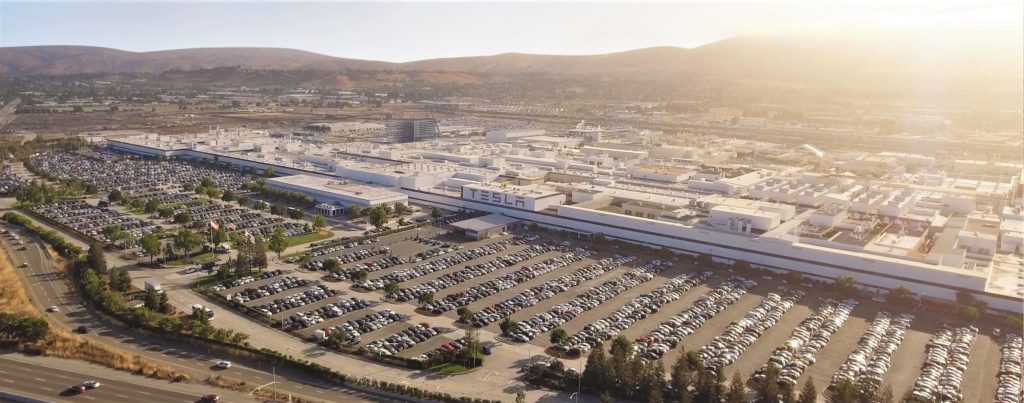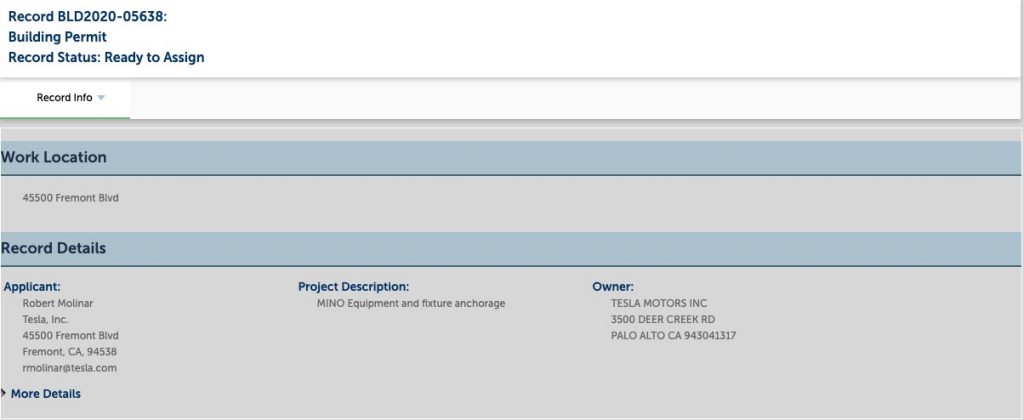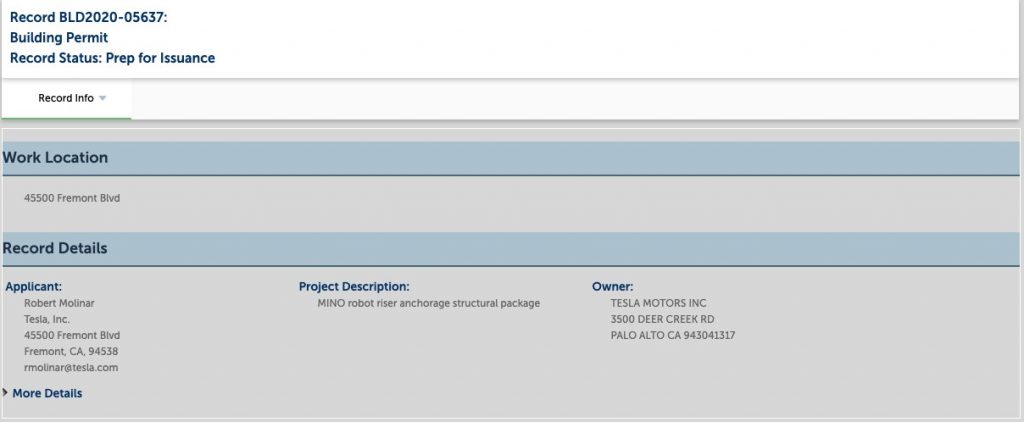

News
Tesla is gathering the pieces for an Alien Dreadnought 2.0 attempt at Fremont
Recent construction permits filed for the Fremont Factory suggest that Tesla is looking to improve the massive electric vehicle production facility’s automation even further. With the plant’s ongoing improvements, it almost seems like Tesla is about to attempt yet another crack at Elon Musk’s once-failed initiative: the “Alien Dreadnought” factory.
The Fremont factory has caught the attention of the nation in the past weeks, as Elon Musk and Tesla locked horns with officials from Alameda County who insisted that the facility remain shut even after California moved to its Stage 2 response for the ongoing pandemic. After a lawsuit, an act of bold defiance from the CEO, some strong words from a CA Assemblywoman against Musk, and support coming from both sides of the political spectrum, the plant was finally allowed to formally return to its normal operations.
But even during the shutdown, Tesla has been exhibiting signs that it intends to improve the Fremont factory. Permits for paint shop improvements were filed, for example, and similar documents were submitted for upgrades in the facility’s vehicle production lines. These lines were speculated to be allotted for Model Y production, which would allow the company to produce the all-electric crossover en masse without any issues.

Just recently, Tesla also filed building permit applications for the addition of “MINO robot riser anchorage structural package” and “MINO Equipment and fixture anchorage” for the Fremont Factory. These may seem a bit understated, though a look at MINO’s expertise provides a notable hint at what Tesla may be planning for its main EV production facility in the United States.
MINO Automation is a firm that provides fully integrated automation production systems that are tailor-fit for its clients. As per the company’s website, MINO specializes in Body in White (BIW) manufacturing systems that concentrate on body framing, laser application, sealing, hemming, resistance welding, and automated stranger systems. MINO works with FANUC Robotics as well, which are also being utilized by Tesla.

A look at Tesla’s recent building permit applications for the Fremont factory shows that the electric car maker is set on improving its plant, and it is also doing what it can to raise its automated processes. Just as Elon Musk intended during the Model 3’s initial delivery event, more automation would likely result in a smooth production ramp. This, of course, is especially important with the Model Y, Tesla’s highest-volume EV to date.
Those who have followed Tesla over the years would know that the company had already attempted an extremely-automated vehicle production approach in the past. Dubbed as Elon Musk’s “Alien Dreadnought” initiative, the program, which was intended for the Model 3, was supposed to be Tesla’s big breakthrough for vehicle production.
Alas, history would show that this was not meant to be, as issues with the over-automated line eventually forced Tesla to adopt a more human-centered approach to Model 3 manufacturing. Even Elon Musk eventually stated that humans are ultimately “underrated.”

But Tesla today is not the same as the company as it was during the early days of the Model 3’s production ramp. Today, Tesla is an experienced mass-manufacturer of electric cars, having produced thousands upon thousands of Model 3 sedans last year. And the company is nowhere near done. Over in Shanghai, Tesla China is attempting to ramp its local Model 3 production at a pace that far exceeds the company’s operations in Fremont.
With this in mind, there seems to be no better time to attempt yet another crack at a hyper-automated factory than today. The Model Y is the perfect vehicle for such an initiative, considering that the crossover is a high-volume car that’s designed to be built in a simple and efficient manner. As per the findings of automotive teardown specialist Sandy Munro, the Model Y seems to be designed for automation, from its rigid wiring systems that are friendly to robots, to its giant casts that eliminate unnecessary parts.
Time will tell if Elon Musk and Tesla are going to attempt another Alien Dreadnought for the Fremont factory. But either way, the remaining months of the year will likely see the California-based electric car production facility manufacturing vehicles at a volume that has never been witnessed before.
News
Tesla begins Robotaxi certification push in Arizona: report
Tesla seems serious about expanding its Robotaxi service to several states in the coming months.

Tesla has initiated discussions with Arizona transportation regulators to certify its driverless Robotaxi service in the state, as per a recent report from Bloomberg News. The move follows Tesla’s launch of its Robotaxi pilot program in Austin, Texas, as well as CEO Elon Musk’s recent comments about the service’s expansion in the Bay Area.
The Arizona Department of Transportation confirmed to Bloomberg that Tesla has reached out to begin the certification process for autonomous ride-sharing operations in the state. While details remain limited, the outreach suggests that Tesla is serious about expanding its driverless Robotaxi service to several territories in the coming months.
The Arizona development comes as Tesla prepares to expand its service area in Austin this weekend, as per CEO Elon Musk in a post on X. Musk also stated that Tesla is targeting the San Francisco Bay Area as its next major market, with a potential launch “in a month or two,” pending regulatory approvals.
Tesla first launched its autonomous ride-hailing program on June 22 in Austin with a small fleet of Model Y vehicles, accompanied by a Tesla employee in the passenger seat to monitor safety. While still classified as a test, Musk has said the program will expand to about 1,000 vehicles in the coming months. Tesla will later upgrade its Robotaxi fleet with the Cyercab, a two-seater that is designed without a steering wheel.
Sightings of Cybercab castings around the Giga Texas complex suggests that Tesla may be ramping the initial trial production of the self-driving two-seater. Tesla, for its part, has noted in the past that volume production of the Cybercab is expected to start sometime next year.
In California, Tesla has already applied for a transportation charter-party carrier permit from the state’s Public Utilities Commission. The company is reportedly taking a phased approach to operating in California, with the Robotaxi service starting with pre-arranged rides for employees in vehicles with safety drivers.
News
Tesla sets November 6 date for 2025 Annual Shareholder Meeting
The automaker announced the date on Thursday in a Form 8-K.

Tesla has scheduled its 2025 annual shareholder meeting for November 6, addressing investor concerns that the company was nearing a legal deadline to hold the event.
The automaker announced the date on Thursday in a Form 8-K submitted to the United States Securities and Exchange Commission (SEC). The company also listed a new proposal submission deadline of July 31 for items to be included in the proxy statement.
Tesla’s announcement followed calls from a group of 27 shareholders, including the leaders of large public pension funds, which urged Tesla’s board to formally set the meeting date, as noted in a report from The Wall Street Journal.
The group noted that under Texas law, where Tesla is now incorporated, companies must hold annual meetings within 13 months of the last one if requested by shareholders. Tesla’s previous annual shareholder meeting was held on June 13, 2024, which placed the July 13 deadline in focus.
Tesla originally stated in its 2024 annual report that it would file its proxy statement by the end of April. However, an amended filing on April 30 indicated that the Board of Directors had not yet finalized a meeting date, at least at the time.
The April filing also confirmed that Tesla’s board had formed a special committee to evaluate certain matters related to CEO Elon Musk’s compensation plan. Musk’s CEO performance award remains at the center of a lengthy legal dispute in Delaware, Tesla’s former state of incorporation.
Due to the aftermath of Musk’s legal dispute about his compensation plan in Delaware, he has not been paid for his work at Tesla for several years. Musk, for his part, has noted that he is more concerned about his voting stake in Tesla than his actual salary.
At last year’s annual meeting, TSLA shareholders voted to reapprove Elon Musk’s compensation plan and ratified Tesla’s decision to relocate its legal domicile from Delaware to Texas.
Elon Musk
Grok coming to Tesla vehicles next week “at the latest:” Elon Musk
Grok’s rollout to Tesla vehicles is expected to begin next week at the latest.

Elon Musk announced on Thursday that Grok, the large language model developed by his startup xAI, will soon be available in Tesla vehicles. Grok’s rollout to Tesla vehicles is expected to begin next week at the latest, further deepening the ties between the two Elon Musk-led companies.
Tesla–xAI synergy
Musk confirmed the news on X shortly after livestreaming the release of Grok 4, xAI’s latest large language model. “Grok is coming to Tesla vehicles very soon. Next week at the latest,” Musk wrote in a post on social media platform X.
During the livestream, Musk and several members of the xAI team highlighted several upgrades to Grok 4’s voice capabilities and performance metrics, positioning the LLM as competitive with top-tier models from OpenAI and Google.
The in-vehicle integration of Grok marks a new chapter in Tesla’s AI development. While Tesla has long relied on in-house systems for autonomous driving and energy optimization, Grok’s integration would introduce conversational AI directly into its vehicles’ user experience. This integration could potentially improve customer interaction inside Tesla vehicles.
xAI and Tesla’s collaborative footprint
Grok’s upcoming rollout to Tesla vehicles adds to a growing business relationship between Tesla and xAI. Earlier this year, Tesla disclosed that it generated $198.3 million in revenue from commercial, consulting, and support agreements with xAI, as noted in a report from Bloomberg News. A large portion of that amount, however, came from the sale of Megapack energy storage systems to the artificial intelligence startup.
In July 2023, Musk polled X users about whether Tesla should invest $5 billion in xAI. While no formal investment has been made so far, 68% of poll participants voted yes, and Musk has since stated that the idea would be discussed with Tesla’s board.
-

 Elon Musk1 week ago
Elon Musk1 week agoTesla investors will be shocked by Jim Cramer’s latest assessment
-

 Elon Musk3 days ago
Elon Musk3 days agoElon Musk confirms Grok 4 launch on July 9 with livestream event
-

 Elon Musk15 hours ago
Elon Musk15 hours agoxAI launches Grok 4 with new $300/month SuperGrok Heavy subscription
-

 News7 days ago
News7 days agoTesla Model 3 ranks as the safest new car in Europe for 2025, per Euro NCAP tests
-

 Elon Musk2 weeks ago
Elon Musk2 weeks agoA Tesla just delivered itself to a customer autonomously, Elon Musk confirms
-

 Elon Musk1 week ago
Elon Musk1 week agoxAI’s Memphis data center receives air permit despite community criticism
-

 Elon Musk2 weeks ago
Elon Musk2 weeks agoTesla’s Omead Afshar, known as Elon Musk’s right-hand man, leaves company: reports
-

 News2 weeks ago
News2 weeks agoXiaomi CEO congratulates Tesla on first FSD delivery: “We have to continue learning!”
















